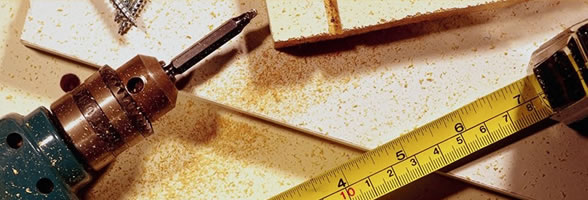
Real Estate Investing 101 - How To Become A Real Estate Investor
Real Estate Secrets - Make Your Profit When You Buy
08/13/2013 19:47Anyone can invest in real estate, but not all of them can do so profitably. This is due in part to many "gurus" teaching bad methodology. For example, many real estate gurus teach their unsuspecting students that it doesn't really matter what you agree to pay for a property, either because "appreciation fixes all mistakes", or because you can always resell for a higher price.
NEWSFLASH! Neither of those is true.
As we discovered in the crash of 2007, appreciation does not always fix mistakes, and property values can go down. And such turn-arounds have bankrupted may investors -0 including some of the famous gurus, like Robert G Allen ("Nothing Down" author) and Dr. Al Lowry, another author on real estate investing.
So here I will impart the first rule of successful investing - make your profit when you BUY, not just when you sell. In other words, you need to negotiate the best price and terms possible, and earn your profit when you buy the place. If appreciation occurs, great - that's a nice bonus. But never forget the old adage that you should not count your chickens before they hatch. So don't plan on appreciation to make your profit for you.
Also note that if you pay too much up front, your service costs (mortgage, taxes, insurance) will increase accordingly, leaving you with less positive cash flow, and less working capital for new investments.
In order to make your profit going in, it is imperative you know the actual market value. Do not confuse market value with asking price, or even the property tax appraisal value. They are all very different. Your concern is actual, current market value. Tax appraisals are usually done according to a percentage plan, such as the tax would be 5% of 75% of value. In such a case, the taxing authority may have the property appraised at only 75%. In other cases, the tax appraisal may only be conducted every 5 or 10 years, so the valuation is seriously outdated.
As for asking price, a seller can ask anything he wants, but that does not mean the property is worth what he is asking. Nope - if you do not know the current market value, you are like a blind man trying to complete the Marine Corps obstacle course.
There are different methods of determining market value. One is by "comping" - comparing the property you are thinking about buying against three or more similar properties recently sold in that same area. But comparing them is not the end - it is the beginning. Once you have those "comparables", you must now add and subtract dollar values according to the differences. For example, if the house you are considering has 2 baths and the comps only have one, you would add the value of a bath. Compare as many important points as possible - baths, bedrooms, garage, lot size, proximity to services etc.
An easier method is to hire an appraiser. A cheaper methods is to get a "desk appraisal". With a desk appraisal, the appraiser never goes to look over the property - he simply gives an estimate based on the info you provide and compares that with recent comparables. Not as accurate as a full apraisal, but often it will do, and it is far less expensive.
With multi-units or other commercial or industrial properties, the best way to determine value is by using a CAP RATE (capitalization rate - how long it takes to get your investment back). To calculate market value using a CAP RATE you would use the formula of V= Net Operating Income (NOI) divided by the Cap Rate you need to meet (usually .10 to .13 - the higher the rate, the better the deal) . Simply put, you divide the net operating income by the rents to determine the value. NOI is what is left of the rental income after paying mortgage, taxes, insurance, vacancy loss, maintenance, utilities, advertising etc.
Let's assume the NOI for a multi-unit is $48,000/year, and you need a cap rate of .12. $48,000 divided by .12 = $400,000. That would be the value of the property. If you can live with a cap rate of .10, then $48,000 divided by .10 = $480,000. So, much depends on the cap rate you decide you need. The average for most investors is .12. I try for .13.
So, in this post you learned a) to make your profit when you buy, and b) how to make sure you get a bargain by knowing the actual market value. And those two things are crucial for lasting success if you want to become a real estate investor. And it is not something you are apt to learn from many of todays "gurus".
Click here for more information on the most effective real estate investing course available
Click here for affordable coaching by the best real estate coach in the business
For more info on some popular gurus:
Tags:
—————
